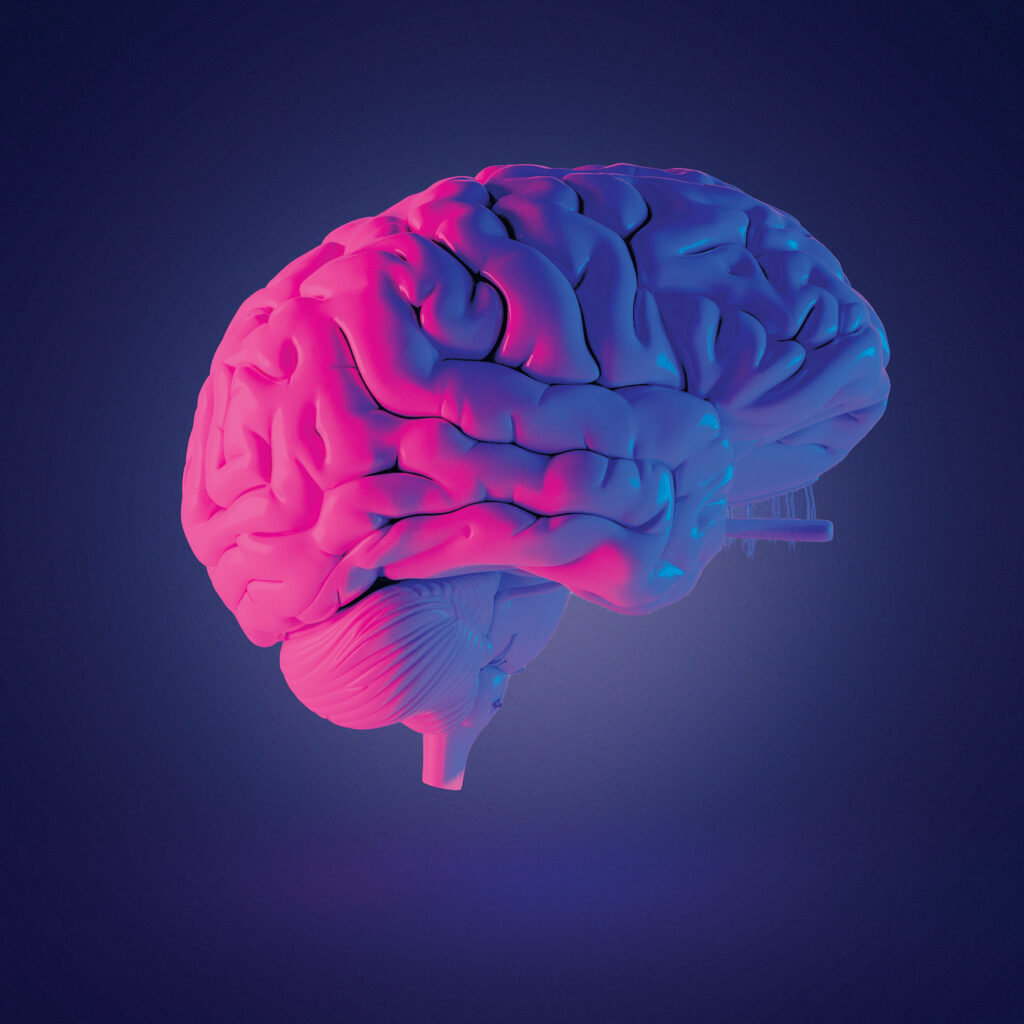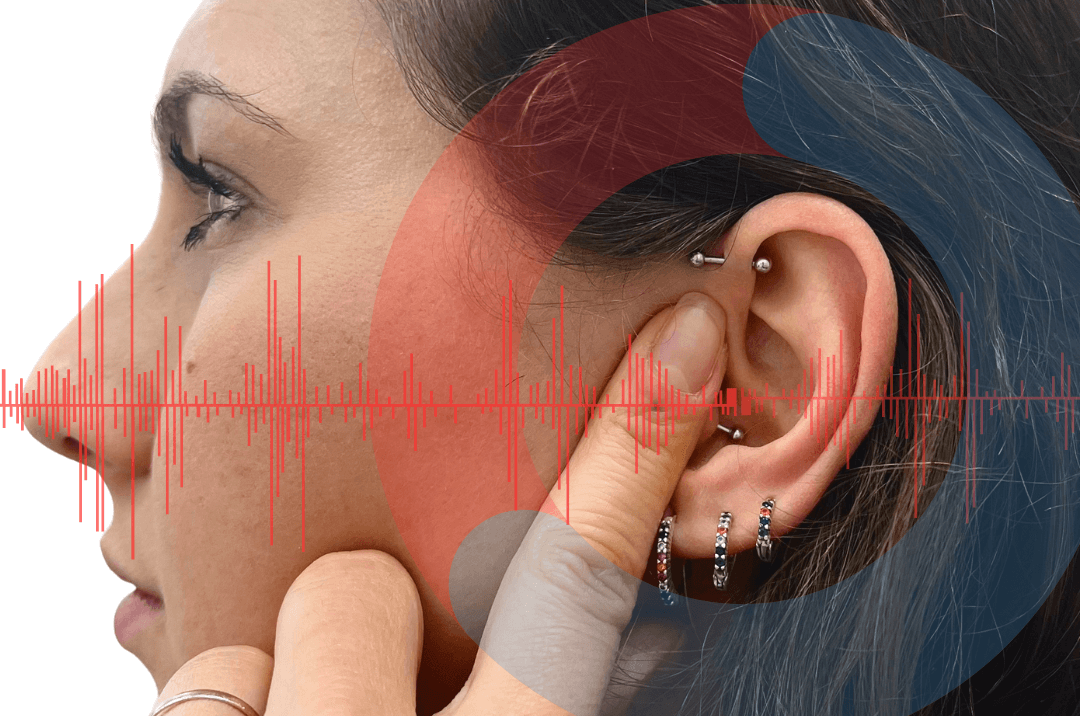Fun fact… we actually hear with our brain and not our ears. Ears receive the sound and then send the noise up to the brain where it processes it for us.
What role does the brain play in hearing?
Before we can discuss how to keep your brain healthy, we need to understand how hearing works. Sound creates vibrations in the air and these vibrations are picked up by the eardrum. The eardrum then vibrates which causes the tiny bones inside the middle ear to vibrate. This transmits the vibrations through the middle ear to the inner ear. This in turn causes the fluid inside the inner ear to move. When this fluid moves, it stimulates the nerve cells inside this part of the ear. The nerve cells then send impulses to the brain along the hearing nerve. The brain interprets these impulses and we finally hear the sound.

Dementia research
A large, decade-long study was published in 2023 which suggests that tackling hearing loss early could mean that your chance of developing dementia reduces to that of someone with no hearing loss. Dementia is one of the world’s biggest health threats. The number of people living with dementia is set to triple by 2050 to over 150 million people worldwide. Health and social care systems will be put under a huge amount of pressure if these figures continue to rise.
The study was published in The Lancet public health journal. This is the first study that provides evidence to suggest that by tackling hearing loss as early as possible and prescribing hearing aids, the risk of developing dementia could be drastically reduced.
The study looked at over 400,000 people and the average age was 56. They found that those with hearing loss who decided not to wear hearing aids had their risk of developing dementia increase by up to 42%. The people who wore hearing aids had no increased risk at all. Researchers went on to state that this is equivalent to a 1.7% risk of dementia in those with hearing loss and no hearing aids. Those with no hearing loss or using hearing aids had a reduced risk of 1.2%.
Hearing aids help protect against cognitive decline
Perhaps a statistic that will shock you is that approximately four-fifths of people with hearing loss do not wear hearing aids in the UK. There are many factors which contribute to this statistic such as accessibility, cost, stigma, denial and a lack of awareness. What these new findings show us more clearly than ever is that early intervention of hearing loss is pivotal in protecting the individual against the risk of developing dementia. Hearing loss may begin in a person’s 40’s but remain untreated for the next 20-25 years. This could result in a gradual cognitive decline, most likely unnoticeable for a very long time, before a dementia diagnosis is given.

If you believe you are suffering with a hearing loss, it’s important to get an appointment with a local Audiologist. The earlier you start treatment, such as hearing aids, the better. We offer hearing consultations in our state of the art clinic. We will advise you of the best course of action for your individual hearing loss.




